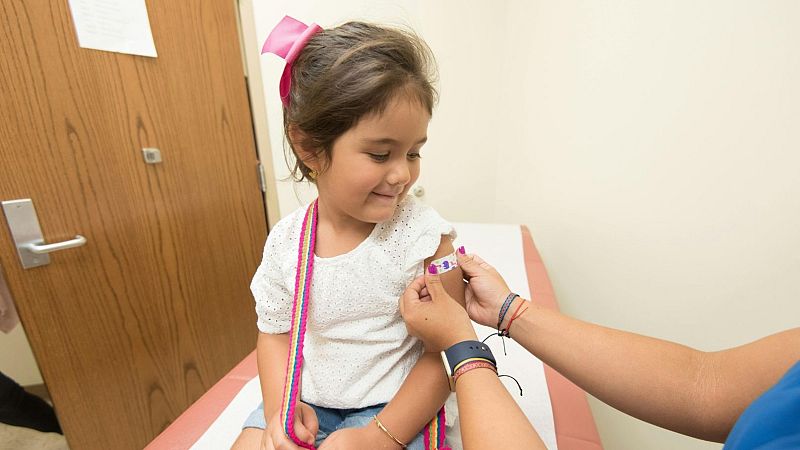
European children are less likely to get routine vaccinations than they were five years ago, according to a new report from the World Health Organization (WHO).
Immunisations against measles, whooping cough, polio, and hepatitis B remained below pre-pandemic levels in Europe and Central Asia in 2024, due largely to a sense of “vaccine complacency” that is already causing a resurgence of preventable diseases, the agency said.
Last year, nearly 300,000 people in the region got whooping cough, more than three times as many as in 2023, the report found. More than 125,000 people got measles, the region’s highest case count in more than 25 years.
“These are not just numbers – it’s hundreds of thousands of families in anguish because their children are sick, and it could have been prevented,” Dr Hans Kluge, the WHO’s Europe director, said in a statement.
More than half of the region’s 53 countries had vaccination rates that were below the level needed to prevent outbreaks of measles, mumps, rubella, diphtheria, whooping cough, and tetanus.
Health experts often point to vaccine hesitancy to explain why more parents are opting not to immunise their children.
But Regina De Dominicis, who leads UNICEF’s work in Europe and Central Asia, instead cited vaccine complacency, which is when parents believe the risks from preventable diseases are low and therefore do not see a reason to vaccinate their children.
“Today’s generation has not witnessed the devastating impact of vaccine-preventable diseases – leading to complacency and making it easier for misinformation to take hold,” De Dominics said.
Improvement on some newer vaccines
Notably, Europeans are not turning away from all vaccines equally. Over the past five years, children and young people have become more likely to get vaccines that protect against human papillomavirus (HPV), rotavirus, pneumonia, and meningitis.
Several countries have introduced these jabs in recent years, which is expected to help reduce rates of HPV infections and related cervical cancer, as well as child hospitalisations from bacterial diseases, pneumonia, and rotavirus-induced diarrhoea, the WHO said.
To boost routine immunisation rates, health officials called on countries to shore up their health systems, ensure vaccines are widely available, and fight misinformation about the jabs.
“Communities must be empowered with trusted information, so parents can confidently vaccinate their children,” Kluge said.







